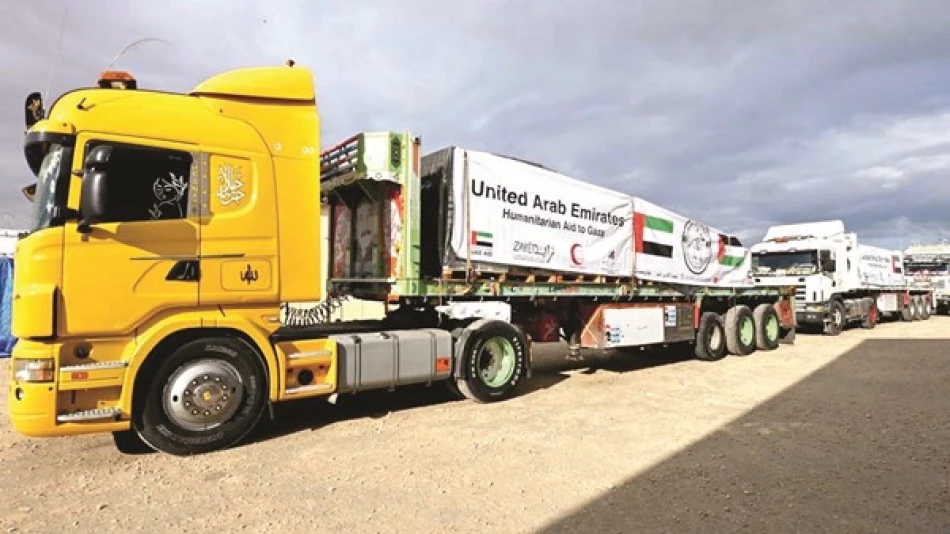
Brave Knight 3" Brings Aid and Relief to Displaced Gazans in Refugee Camps
The UAE continues its humanitarian mission in Gaza through "Operation Gallant Knight 3," delivering critical aid to Palestinian families as the crisis deepens. The operation, ordered by President Sheikh Mohammed bin Zayed Al Nahyan, has distributed clothing to 170 families at the Nasser School complex in Khan Younis and launched cancer support initiatives during October's breast cancer awareness month.
The humanitarian operation goes beyond basic relief work. Teams are operating directly in displacement camps, where hundreds of thousands of Palestinians have been forced to relocate under what officials describe as suffocating siege conditions. The UAE initiative includes medical support for cancer patients in Gaza, where healthcare systems have collapsed and treatment access remains severely limited.
Abdul Fattah Dawla, spokesperson for the Palestinian Fatah movement, called the UAE's sustained efforts a historic stance that represents Arab solidarity at its finest. He pointed to the stark reality facing Gaza residents: two million people living under siege, lacking basic necessities like food, medicine, and fuel.
"Every medicine box and every food truck becomes a lifeline that gives our people strength to face death and hunger," Dawla said. He emphasized that UAE aid carries deeper meaning beyond immediate humanitarian relief, reflecting Arab brotherhood and confirming that the Palestinian cause remains present in Arab consciousness.
The timing matters significantly. Major General Habes Al-Sharuf, director of the Palestine Institute for National Security, noted that UAE assistance serves as a vital factor in alleviating Palestinian suffering amid what he described as systematic policies targeting their existence.
Al-Sharuf explained that the war on Gaza extends beyond bombing and destruction. It follows a clear strategy aimed at depriving people of life's basic requirements and forcing them into displacement and departure. UAE aid functions as a safety valve preserving the lives of hundreds of thousands of families.
But here's what makes this particularly significant: UAE efforts represent more than emergency relief operations. They extend a consistent policy the Emirates has maintained toward the Palestinian people for years, creating a model for sustained regional support during extended crises.
The operation highlights how Gulf states are taking direct action while international diplomatic efforts remain stalled. For Palestinians in Gaza, these supply lines have become essential infrastructure, replacing collapsed local systems and providing hope during what many describe as the darkest circumstances they've faced.
Palestinian officials are calling on the international community to take immediate action to stop the war and ensure safe, adequate relief reaches all civilians. The UAE's approach demonstrates how regional powers can maintain humanitarian corridors even when broader political solutions remain elusive.
Most Viewed News

 Layla Al Mansoori
Layla Al Mansoori






